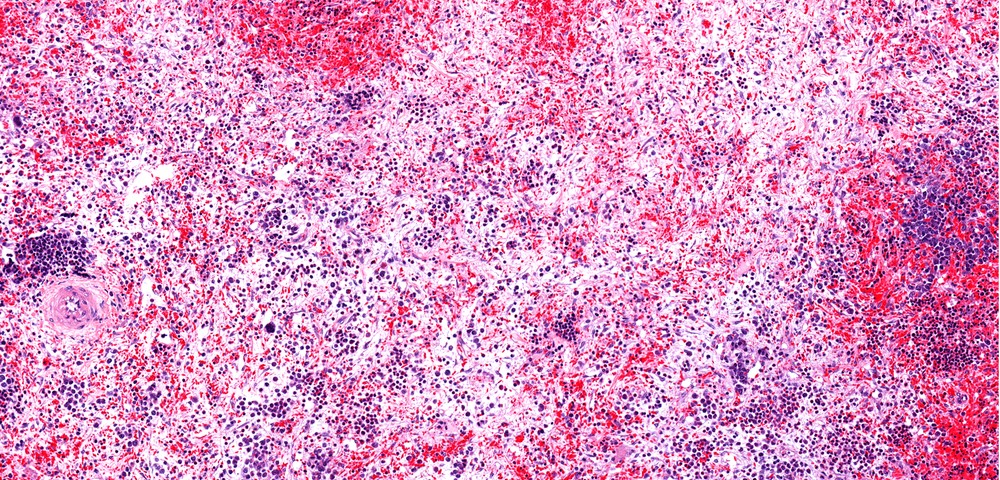The University of Texas MD Anderson Cancer Center researchers discovered that a class of immune cells — myeloid-derived suppressor cells (MDSC) — plays a critical role in prostate cancer progression, and that its inhibition promotes anti-tumor responses and prolongs survival. The study, titled “Targeting YAP-Dependent MDSC Infiltration Impairs Tumor Progression,” was published in the journal Cancer Discovery.
MDSC are released into the blood to protect tissues from the damaging effects of excessive immune system stimulation during acute and chronic infections, and also to limit the generation of autoimmune responses. Previous studies suggested a link between MDSC and cancer; however, the role of MDSC in cancer progression, particularly in prostate cancer, remains largely unknown.
Y. Alan Wang, PhD, associate professor of Cancer Biology and one of study’s corresponding authors, said in a press release, “The tumor microenvironment is made up of a mixture of fibroblasts, infiltrating immune cells and other cells, proteins and signaling molecules. MDSCs are infiltrating immune cells that promote tumors through their striking lack of immunological response.”
Researchers used a new prostate adenocarcinoma mouse model along with patient tumor samples to identify that MDSCs are the major infiltrating immune cell type in prostate tumors. Importantly, MDSC depletion had the capacity to block tumor progression.
The team observed that tumor cells secret a specific chemokine, Cxcl5, that attracts or “recruits” MDSCs expressing the Cxcr2 protein. Once within the tumor microenvironment, Cxcr2-MDSCs allow tumors to grow. Using small molecule inhibitors for Cxcr2, researchers were able to halt tumor progression.
Ronald A. DePinho, MD, professor of Cancer Biology and president of MD Anderson, and the study’s lead author, added, “Pharmacologic elimination of MDSCs or blockage of the Cxcl5-Cxcr2 signaling pathway resulted in robust anti-tumor response in vivo and prolonged survival. The targeting of either MDSC recruitment or infiltrated MDSCs may represent a valid therapeutic opportunity in treating advanced prostate cancer.”
These findings, although preliminary, suggest that combining MDSC inactivation with immunotherapy may further enhance anti-tumor responses and significantly increase patients’ survival.

